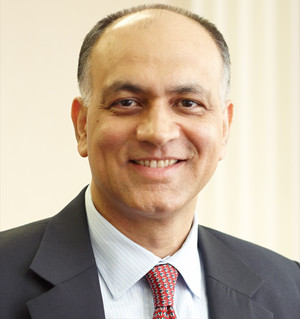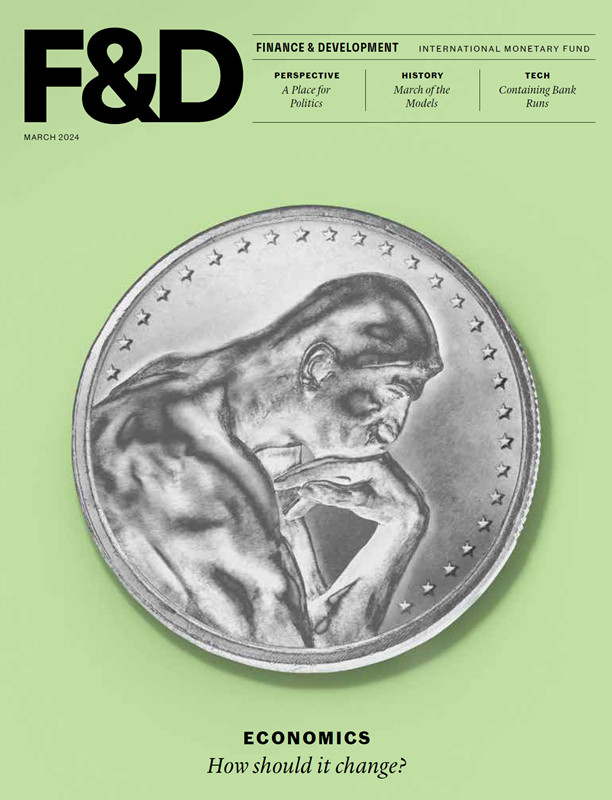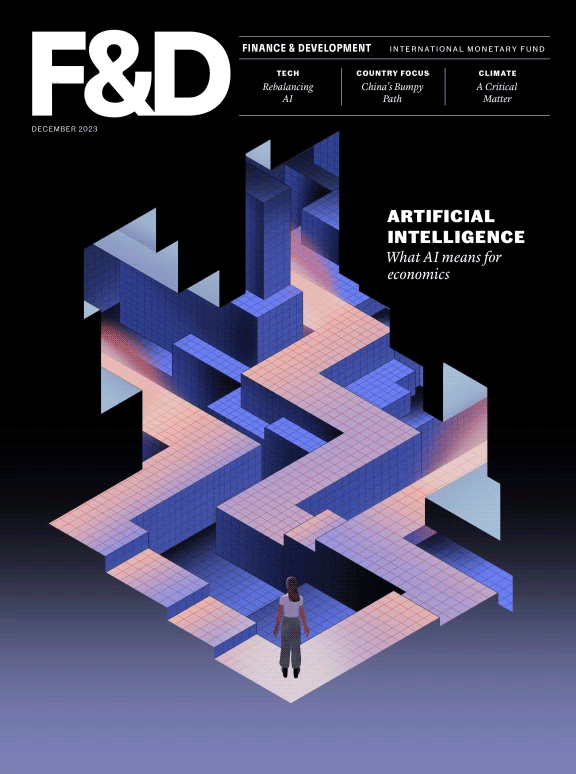The 21st century is set to be one of massive disruptions that pose serious threats to society

The pressures of the COVID-19 pandemic are forcing an overdue reckoning about our world’s ability to manage systemic hazards. Driven by increasing fragility in our political, social, economic, and financial orders—all dependent on a natural environment nearing the brink—these apparent bolts from the blue will keep striking. With all systems simultaneously in flux, the 21st century is set to experience massive disruptions that pose serious and possibly existential threats to society.
Coping with such problems will require major changes to how we make and carry out decisions. For decades, humanity has tried to run economies, indeed whole societies, as though they were complicated machines that just needed tinkering and control of a few key levers to obtain optimum performance. But lately, we have begun to see the error of such thinking. The myopic behavior and narrow focus on efficiency and shareholder financial returns that have dominated political and economic decision-making for decades have yielded somewhat efficient but largely fragile systems stripped of resilience.
Political economy thinking has long expanded the technocratic view of governance to encompass the importance of political power and vested interests in shaping rules, incentive structures, and resource allocation. Now, to address the complexity of a much larger population interacting ever more intensively, with much greater social and environmental impacts, our understanding of political economy must extend further. Instead of putting efficiency first, policies must ensure societies’ resilience to the full range of threats, including pandemic diseases, climate volatility, and economic and financial stress.
Political turmoil
Political systems today often reflect the preferences of their elites and struggle to serve the needs of the broader public. Until the pandemic hit, mass protests were erupting around the world, from Chile to Hong Kong SAR, often spurred by sparks of discontent that triggered firestorms of anger. The rise of national populism and political polarization in many parts of the world, including leading democracies, reflects a breakdown of trust in institutions and in fellow citizens—undermining the social trust on which governance depends. And at the global level, the post–World War II formal international order that underpinned stability and prosperity for a large share of humanity is currently rudderless and possibly disintegrating.
The pandemic has exposed, not caused, these weaknesses, and societal responses offer clues about how to build more resilient polities based on renewed social trust. Much of the biomedical science community has jettisoned competition for prestigious publications and grants to share research. Foundations and informal networks, from alumni associations to coders to entrepreneurs, have organized volunteers and mobilized supplies, first for Wuhan and now around the world. Most important, growing recognition of the social value of inadequately compensated service workers, from health aides to meatpackers to teachers, may foster political momentum to redress the inequalities that have polarized societies and undermined social trust.
Economic and financial fragilities
Policy responses to the 2008 financial crisis staved off imminent collapse but failed to put us on a path toward sustainable and inclusive growth. Politically constrained fiscal policy did not fully rise to the task. Monetary policy, traditional and novel, tried to fill the gaps but now seems exhausted and ineffective. Asset prices recovered after the crisis, but private and public debt have continued to grow, and wealth inequality within many countries has soared. Global demand remains deficient, and inflation rates refuse to rise to the targets set by many central banks.
The response to the coronavirus pandemic has effectively put the global economy in a temporary coma, exacerbating the difficulty of tackling the ongoing challenges: inadequate health and social security systems; high debt among financial and nonfinancial institutions, households, and governments; income inequality; deficiencies in corporate governance; weak government oversight and regulation; and destruction of the environment. These challenges are taking place in economic and financial systems on the brink of profound change driven by innovations, from blockchain technology to artificial intelligence.
The 2008 crisis provided a crucial lesson in the need for systemic approaches to financial stability (see Agur and Sharma 2015 and Arner and others 2019). It demonstrated that traditional micro-prudential rules had focused too much on individual financial actors, ignoring the inadvertent collective outcomes of market interactions. Countries responded to the financial crisis by creating macro-prudential regulatory frameworks and agencies to ensure the stability and resilience of the financial sector. Decision-makers must expand this systemic thinking to encompass the entire economy and invest in broader public engagement to enable reform and development of durable solutions.
Planetary upheaval
The scale of the environmental crisis finally seems to be hitting home across the world. Battered oceans, collapsing ecosystems, species extinctions, and extreme weather are generating refugee flows, undermining agriculture, and threatening global supply chains. Without dramatic action, within decades rising seas will swamp cities from Shanghai to Miami, and temperatures may soar beyond habitable levels for a large swath of the planet. But the standard policy tool kit does not adequately support action at the local level, where the impacts are felt, and is still divided into unconnected regulatory structures for managing pollution and environmental destruction as “externalities” rather than elements of an interconnected system.
The 2015 Paris Agreement on climate change illustrates how a broad common goal and appropriate institutional structures are a better approach to managing systemic complexity (Florini and Florini 2017). The Paris Agreement set a goal of global warming below 2°C and preferably below 1.5°C, but, unlike previous failed efforts, it does not demand agreement on the solution. Instead, it requires its parties to determine nationally what actions they want to take, report regularly on their emissions and actions, and come together every five years to update those national plans as scientific understanding and technology develop. Crucially, it actively promotes the engagement of cities and other subnational actors, civil society, and the private sector, unleashing an abundance of meaningful, loosely connected multi-stakeholder initiatives that could, if fully implemented, bring us close to meeting the 2°C target. The Paris approach combines a centrally shared vision with strong encouragement for decentralized, flexible execution by multiple actors: an approach well suited to managing complex systems (Kupers 2020).
Interactions of the spheres
All three spheres that determine human well-being—politics, economics, and natural systems—are becoming more fragile and harder to manage. And those fragilities interact.
An economy that produces rising inequality and a physical environment marked by climate volatility and collapsing ecosystems make it harder for the average household to fend for itself, leading to more divisive politics that are then less able to build broad societal resilience to downward income trends and climate change. Corporate and financial sectors that focus solely on profits while shirking responsibility for the environment and society—coupled with weak political and regulatory oversight—are likely to worsen both inequality and the climate emergency. This in turn will damage both the corporate and financial sectors as well as the political system. A climate crisis, coupled with dysfunctional governance, is likely to lead to an economy that is bad for business and the financial sector, as firestorms, extreme weather, and rising sea levels disrupt supply chains and drive workers to unwanted migration.
Now we face the monumental task of rethinking how to govern and manage. If our existing tools are not working, what should we do instead?
Governing systemic hazards
Our current political systems—governments, legislatures, and bureaucracies—can do a good job with predictable problems. They apply rules developed through experience and analyses that draw on historical data. This approach works for many tasks. But standard government processes assume predictability, depend on agreement about likely future events, and divide decision-making into narrow silos. They cannot effectively manage hazards that cross silos and are inherently unpredictable.
Because we know that pandemics, economic crises, and environmental instability will hit hard, but cannot predict exactly where or when, we need to give resilience—society’s ability to absorb and adapt to change and prevent systemic breakdowns—equal billing with the efficiency concerns that now dominate. Complex systems involve multilayered interactions across a variety of people, sectors, institutions, and policies—interactions with a dizzying array of feedback loops, path dependencies, time lags between cause and effect, and tipping points.
The reality of systemic hazards—with their complexity, uncertainty, and ambiguity—calls for decision criteria based on a new set of principles:
Robustness:
Decision-makers should aim for robust, rather than narrowly optimized, choices that will work in a wide range of future scenarios. These choices should be flexible enough to take advantage of opportunities for a variety of future interventions and should not unduly constrain future options.
Multilayered governance:
Complex societies need both integrated and broad perspectives to make good
decisions, requiring a “whole-of-
government” approach and “whole-of-society” solutions. Collaboration
between the public, policymakers, experts, and other stakeholders regarding
knowledge, experience, interpretation, concerns, and perspectives is
critical.
Empowered self-organization (McChrystal and others 2015): Systemic fragility can manifest in different ways in different places—for example, as in the case of climate impacts that require flexible self-organized action by a wide range of societal actors. Policymakers can do much to inform, empower, and coordinate such bottom-up responses, which are beyond the capacity of central governments alone.
Communication: Communication of societal dynamics to the public is difficult but crucial. It is hard to agree on a set of policies or structural changes without some shared understanding of the nature of the complex problems we face. Public comprehension generates trust and collective ownership of decisions.
“Horizon Scanning” and early action: Despite the unpredictability of complex systems, such techniques as horizon scanning and scenario analysis can often detect signs of emerging problems that could cause systemic disruption. The recent global financial crisis and the current pandemic have made it clear that systemic disruptions inflict huge societal costs. Societies must motivate their leaders to focus on prevention.
The 21st century is less and less the world of our forebears. Technology is upending the nature of economies and human interaction. Power is flowing away from traditional governors but not toward any well-structured institutions that can reliably manage the changing global order. Storms, heat waves, floods, and droughts are regular and deadly reminders of shifting climate patterns. Social unrest is rising along with inequality, and no one is sure where the jobs of the future will come from or what the social contract will look like.
In this world, there is no way to predict the exact consequences of systemic fragilities. Our decision-making institutions and processes, which assume an unrealistic degree of predictability, have yet to adapt to this reality.
But recent action on the political, economic, and environmental fronts gives clues about how to proceed and key principles that can guide us through the transition to a new political economy. People around the planet are experimenting with ways to implement these principles, from “futures” departments in national governments, to “circular economy” production designs that eliminate waste, to multi-stakeholder networks focused on systemic transformation. The pandemic and its consequences should spur the scaling up of those experiments to bring about the kind of resilience that our complex global society so desperately needs.
Opinions expressed in articles and other materials are those of the authors; they do not necessarily reflect IMF policy.
References:
Agur, I., and S. Sharma. 2015. “Rules, Discretion, and Macro-Prudential Policy.” In Institutional Structure of Financial Regulation—Theories and International Experience , edited by Robin H. Huang and Dirk Schoenmaker. London: Routledge.
Arner, D. W., E. Avgouleas, D. Busch, and S. L. Schwarcz, eds. 2019. Systemic Risk in the Financial Sector: Ten Years after the Great Crash . Toronto: Centre for International Governance Innovation.
Florini, A., and K. Florini. 2017. “It’s Not Just about Paris: International Climate Action Today.” Foreign Service Journal (July/August):26–31.
Kupers, R. 2020. A Climate Policy Revolution: What the Science of Complexity Reveals about Saving Our Planet . Cambridge, MA: Harvard University Press.
McChrystal, S., T. Collings, D. Silverman, and C. Fussell. 2015. Team of Teams: New Rules of Engagement for a Complex World. New York: Portfolio/Penguin.









